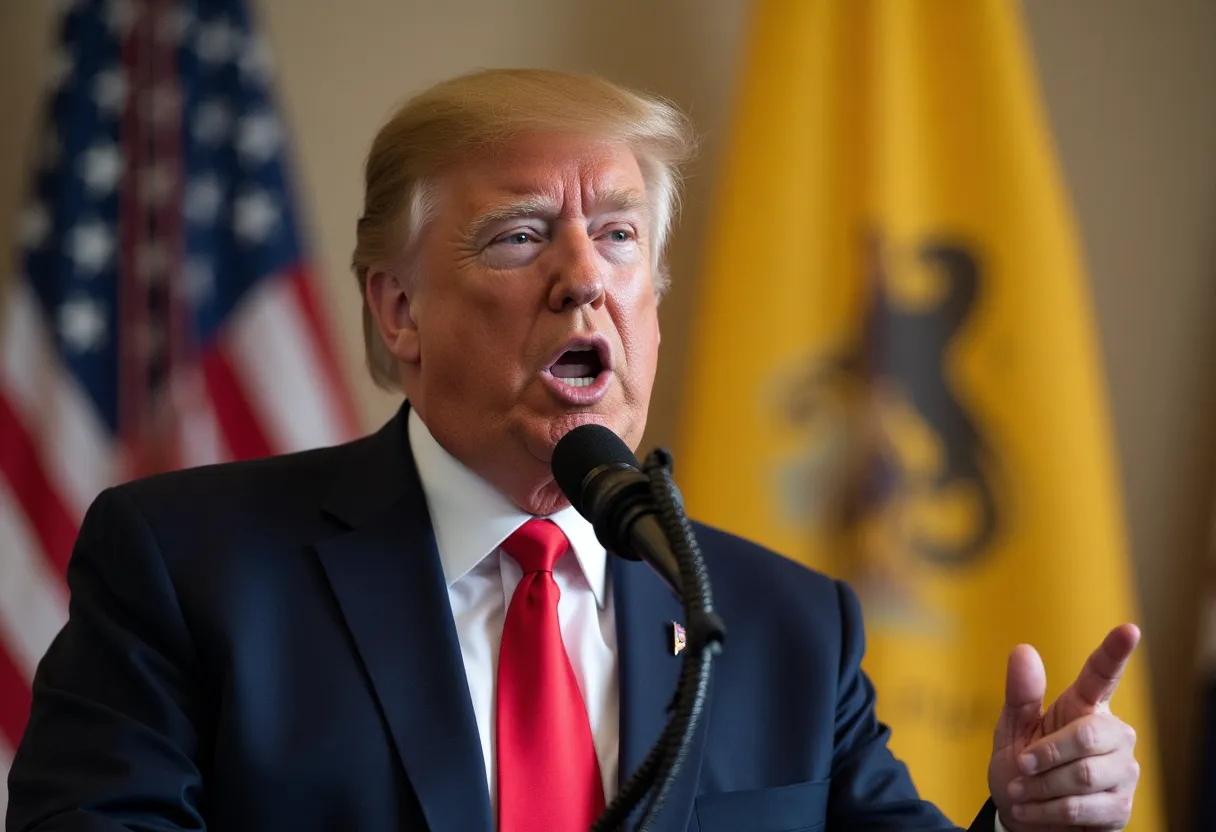Trump Advocates Bitcoin as a Solution for Dollar Challenges
In recent discussions surrounding the future of the U.S. dollar and global finance, former President Donald Trump has emerged as a surprising advocate for Bitcoin. His endorsement of cryptocurrency as a potential solution to the challenges facing the dollar has sparked conversations across various financial platforms. This article explores Trump’s perspective on Bitcoin, the implications for the dollar, and the broader context of cryptocurrency’s rise in the global economy.
The Dollar’s Current Challenges
The U.S. dollar has long been regarded as the world’s dominant currency. However, it is currently facing several challenges that threaten its status:
- Inflation: The rapid increase in the money supply, especially during the COVID-19 pandemic, has led to significant inflationary pressures.
- Debt Levels: The national debt continues to soar, causing concerns about the long-term sustainability of the dollar.
- Competition from Other Currencies: Other nations are exploring alternatives to the dollar, including central bank digital currencies (CBDCs), which may erode its dominance.
Trump’s comments underscore a growing sentiment among some financial analysts who believe that the dollar’s reign may not last forever.
Trump’s View on Bitcoin
During recent interviews, Trump has articulated a belief that Bitcoin could serve as a viable alternative to the dollar, especially in times of economic uncertainty. He argues that:
- Bitcoin is a Hedge Against Inflation: With rising inflation rates, Bitcoin’s limited supply could provide a safeguard for investors looking to protect their wealth.
- Decentralization: Unlike fiat currencies, Bitcoin operates on a decentralized network, which can potentially reduce the influence of government policies on its value.
- Global Acceptance: As more individuals and businesses adopt Bitcoin, it could become a widely accepted form of payment, increasing its legitimacy as an alternative to traditional currencies.
Trump’s support for Bitcoin is particularly noteworthy given his previous skepticism towards cryptocurrencies. This shift indicates a recognition of the evolving financial landscape and the potential for digital currencies to reshape economic systems.
The Broader Implications for Cryptocurrency
Trump’s advocacy for Bitcoin is part of a larger trend where prominent figures in politics and finance are beginning to acknowledge the impact of cryptocurrencies. This trend has several implications:
- Legitimization of Cryptocurrencies: When influential leaders endorse cryptocurrencies, it lends credibility to the sector and encourages wider adoption among the general public.
- Regulatory Discussions: As cryptocurrencies gain traction, there will likely be increased discussions around regulation. Lawmakers will need to find ways to balance innovation with consumer protection.
- Market Volatility: The endorsement of Bitcoin by a high-profile figure like Trump can lead to fluctuations in the market. Investors often react strongly to news, causing price volatility.
Potential Risks and Concerns
While Trump’s support for Bitcoin may be seen as a positive development, there are also potential risks and concerns associated with its rise:
- Market Manipulation: High-profile endorsements can lead to market manipulation, where prices surge based on speculation rather than fundamentals.
- Security Issues: The cryptocurrency market is still vulnerable to hacks and fraud, which can deter potential investors.
- Environmental Concerns: Bitcoin mining consumes significant energy, raising concerns about its environmental impact, especially as the world moves towards sustainability.
The Future of Bitcoin and the Dollar
As discussions about Bitcoin and its potential to alleviate the challenges facing the dollar continue, it is essential to consider the future of both currencies. While Bitcoin offers a new approach to finance, the U.S. dollar remains a critical component of the global economy.
The future may see a coexistence between traditional currencies and cryptocurrencies, with each serving different needs and preferences of consumers and investors. Innovations in financial technology will likely continue to blur the lines between these two worlds.
Conclusion
Trump’s endorsement of Bitcoin as a solution to the challenges facing the U.S. dollar marks a pivotal moment in the ongoing evolution of the financial landscape. As cryptocurrency gains traction and legitimacy, it presents both opportunities and risks for investors and policymakers alike.
Understanding the dynamics of this rapidly changing environment is crucial for anyone looking to navigate the complexities of modern finance. Whether Bitcoin will ultimately serve as a viable alternative to the dollar remains to be seen, but one thing is clear: the conversation around cryptocurrency is just beginning, and its implications are far-reaching.
As we look toward the future, the interplay between Bitcoin and the dollar will continue to shape economic discussions, financial strategies, and investment decisions in the years to come.






